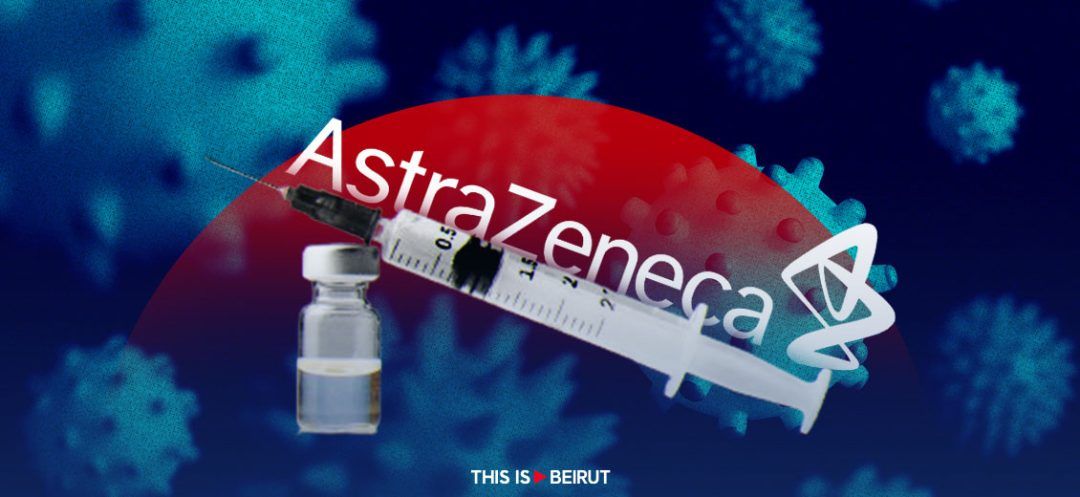
AstraZeneca has announced the withdrawal of its COVID-19 vaccine due to “decreasing demand.” However, given the events that have taken place since 2021, one can tend to believe that this move could be dictated by other factors.
One year after the global health emergency linked to the Covid-19 pandemic was lifted, controversies regarding the vaccines used against SARS-CoV-2, especially the Oxford-AstraZeneca vaccine, are still ongoing. Ever since it was introduced on the market, this particular vaccine has been a topic of debate and has failed to garner widespread unanimity.
While scientific studies regarding the long-term effects of these vaccines are ongoing, AstraZeneca announced on May 8th that it has initiated the worldwide withdrawal of its COVID-19 vaccines due to “decreasing demand.” The British pharmaceutical giant stated in a press release received by AFP, “With the development of numerous updated vaccines tailored to Covid-19 variants, there is now an oversupply of available vaccines.”
'Closing this chapter'
AstraZeneca announced that in the initial phase, the vaccine will be removed from the European market. It further stated its collaboration with other regulators “to initiate market authorization withdrawals for Vaxzevria in areas where there is no anticipated future demand for the vaccine.” This move stresses AstraZeneca's commitment to “closing this chapter” in its battle against SARS-CoV-2. Until May 7, 2024, it is estimated that this virus has claimed the lives of nearly 7 million people worldwide.
Furthermore, the profile of the vaccine has been updated on the website of the European Medicines Agency (EMA), indicating that the authorization for sale of this preventive medicine was withdrawn "at the request of the marketing authorization holder," namely, the British pharmaceutical laboratory.
Questions
However, the developments that took place ever since 2021 suggest that this recall might be driven by reasons beyond simple commercial ones. In fact, in March 2021, three months after the commercialization of the vaccine –developed jointly by the University of Oxford and AstraZeneca – the British drug company reported seven deaths linked to venous thrombosis in individuals who had received this vaccine. Likewise, that same month, a 24-year-old French man died from abdominal venous thrombosis, ten days after receiving a dose of the aforementioned vaccine.
The pharmaceutical company refused to acknowledge a causal connection between thrombosis-thrombocytopenia syndrome (TTS) – a health condition characterized by blood clots and low platelet counts – and its vaccine. In a response letter dated May 2023, AstraZeneca informed attorneys acting on behalf of a person who experienced a stroke in April 2021 after receiving the British vaccine that it does not "agree that TTS is generally caused by the vaccine."
That same year, the EMA concluded that a cause-and-effect relationship between the vaccine and these thromboses is "possible." However, it underlined that the benefits of the vaccine definitely outweigh its effects, highlighting that the mortality rate associated with Covid-19 (3.4% before the onset of large-scale vaccination campaigns, according to the World Health Organization) is higher than that associated with these thromboses (one case per million vaccinated with this product).
However, in April 2021, in collaboration with the British regulator MHRA (Medicines and Healthcare Regulatory Agency), the pharmaceutical company updated the information regarding its vaccine. The revised information included a statement stating that "the AstraZeneca-Oxford vaccine could, in exceptionally rare cases, trigger TTS." Despite this update, the vaccine remained in circulation for three years.
British high court
So far, a group of 50 families in the United Kingdom has filed a lawsuit against AstraZeneca. In one of the legal documents dated February 2024, the pharmaceutical company recognizes that its vaccine can "in very rare cases, lead to TTS." This acknowledgment can be a game-changer, as it suggests that the pharmaceutical company might be liable to financially compensate the victims or grieved relatives, with claims estimated at nearly £100 million, according to the Telegraph.
Could these legal implications have influenced AstraZeneca's decision to withdraw its vaccine? Only time will tell.
What about patients who received AstraZeneca?
While legal data may be inconclusive, one thing is clear: based on current scientific evidence, individuals who have received the AstraZeneca vaccine do not seem to be at a higher long-term risk than those who were administered other vaccines, or even those who were not vaccinated at all.
Pharmacovigilance studies (which are always conducted after the release of drugs including vaccines) aiming to detect widespread side effects have yet to be published. Several recent studies have concluded that the risk of developing TTS is slightly higher with the AstraZeneca vaccine, but only in the few weeks after vaccination.
A national cohort study conducted in Denmark and Norway, mentioned in a meta-analysis by Faksova et al., disclosed an increase in the rate of venous thromboembolic events estimated at 2.5 events per 100,000 vaccinations with the Oxford/AstraZeneca vaccine during the at-risk period of 0 to 42 days.
Finally, it's essential to highlight that the successful containment of the Covid-19 pandemic has been largely credited to vaccination campaigns, in addition to naturally acquired immunity. A study published on May 1st by Jackson et al. sought to infect 36 consenting volunteers with a newly engineered laboratory strain to assess novel vaccines and treatments. However, they failed to induce the disease. This study thus shows the power of vaccination-induced or prior infection-induced protective immunity against SARS-CoV-2.
Read more




Comments